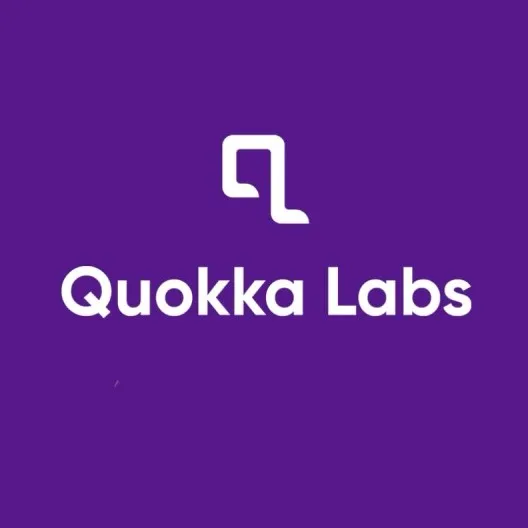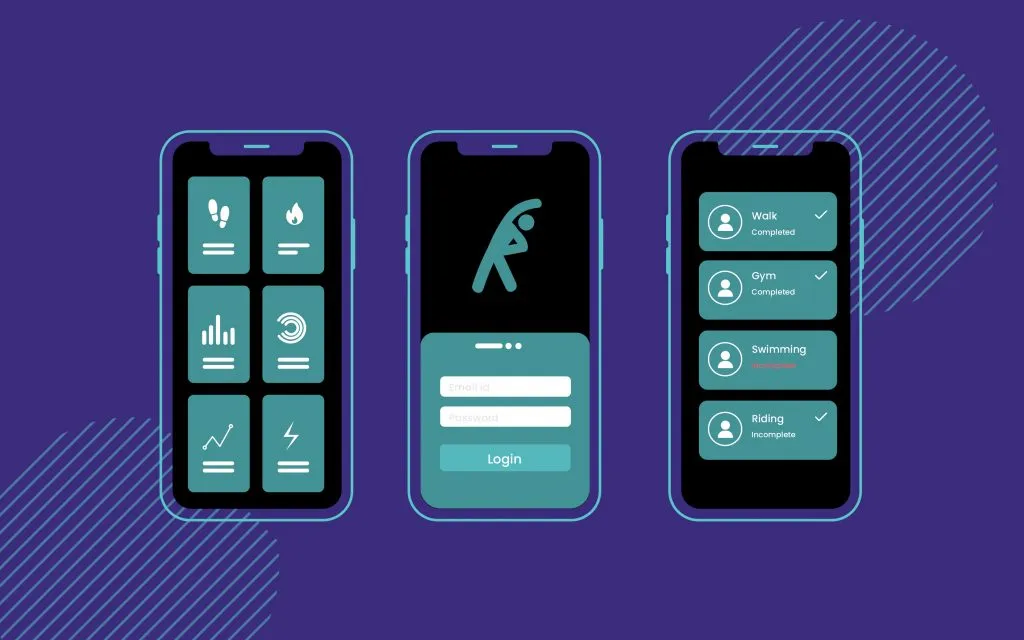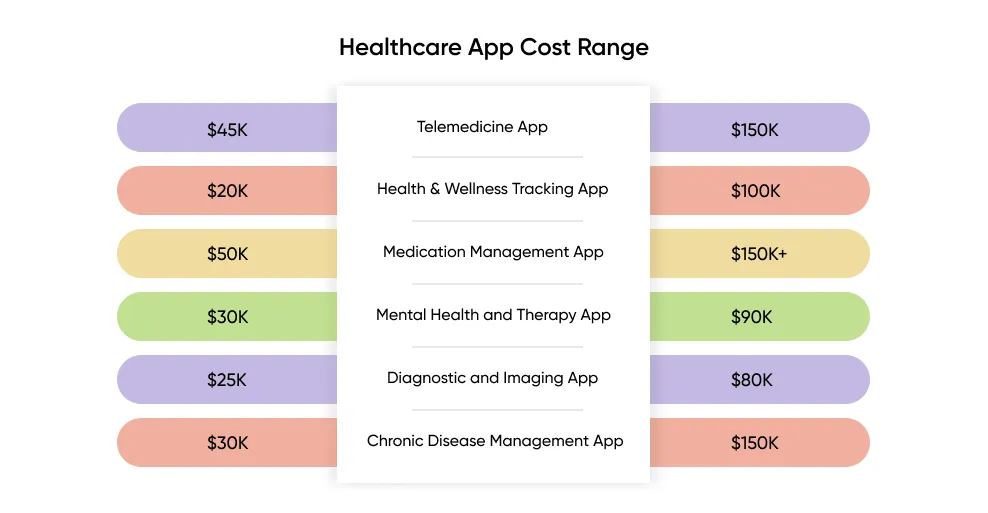Business


4 min


Crafting a Healthcare App Roadmap" - Uncover the essential steps to develop a healthcare app, from ideation to deployment, ensuring a seamless user experience and compliance with industry standards. Dive into this roadmap for success in the dynamic world of healthcare technology.

By Quokkalabs LLP
18 Oct, 2021
In the age of smartphones and wearable technology, health and fitness tracking apps have become an integral part of our daily lives. These healthcare apps help individuals monitor their physical activity, nutrition, and overall well-being, providing insights that empower them to make healthier choices. If you want to create a medical app, you're in the right place. This comprehensive guide will take you through a step-by-step roadmap to healthcare app development.
The projected revenue for the healthcare industry is expected to reach $35.7 billion by 2030, a significant increase from the $8.21 billion it generated in the previous year. Investing in healthcare application development can offer numerous compelling advantages and opportunities:-
Meeting Growing Demand: The healthcare industry is witnessing an increasing demand for digital solutions. Addressing this demand, healthcare apps can provide convenient access to information, services, and telemedicine.
Improved Patient Care: Healthcare mobile apps can enhance patient care by providing tools for monitoring health, managing medications, and tracking symptoms. This can lead to better health outcomes.
Cost-Efficiency: Digital healthcare mobile solutions can streamline processes, reduce administrative overhead, and lower costs for healthcare providers. It can lead to significant savings in the long run.
Data Analytics: Apps can collect vast amounts of healthcare data, which can be used to identify trends, improve treatments, and provide personalized care.
Telemedicine: Telemedicine apps have gained popularity, especially in light of the COVID-19 pandemic. They allow patients to consult with healthcare professionals remotely, increasing access to care.
Research and Development: Healthcare apps can facilitate clinical trials, medical research, and the development of new treatments. They can also speed up the process of bringing innovative therapies to market.
Revenue Generation: Developing a healthcare app can be profitable. There are various monetization opportunities, whether through direct sales, subscriptions, or partnerships.
Personalized Healthcare: Healthcare apps can offer personalized recommendations and insights based on an individual's health data, improving the quality of care.
The healthcare sector is ripe for digital transformation, and investing in healthcare app development can yield significant benefits in improved patient care, cost savings, and business opportunities. However, navigating the complex regulatory environment and prioritising data security is crucial to ensure success in this dynamic industry.
Also Read: Cloud Computing in Healthcare
 Before you embark on the journey of building a health and fitness tracking app, it's essential to understand the basic components and features such an app typically includes. Here are some fundamental elements:
Before you embark on the journey of building a health and fitness tracking app, it's essential to understand the basic components and features such an app typically includes. Here are some fundamental elements:
(1). User Profile: Users create profiles with personal information such as age, weight, height, and fitness goals. This data helps the app provide tailored recommendations.
(2). Activity Tracking: The app should monitor users' physical activities, such as steps taken, distance covered, calories burned, and exercise routines.
(3). Nutrition Tracking: Users can log their daily food and water intake. The app can provide nutritional information and track calories consumed.
(4). Health Metrics: Users may track vital health metrics like heart rate, blood pressure, sleep patterns, and weight.
(5). Goals and Progress Tracking: The app should allow users to set fitness goals and track their progress over time.
(6). Social Sharing: Users can share their achievements and workouts with friends and social media.
(7). Data Analytics: The app should provide data visualization and insights based on user input, helping users make informed decisions.
Now that you understand the basic features let's dive into the roadmap to build your health and fitness tracking app.
The first step is to define your app's unique selling proposition. What sets your health and fitness app apart from the competition? Are you targeting athletes, beginners, or a specific niche? Understanding your target audience will help you design features that cater to their needs and preferences.
Start by conducting market research to identify your potential users' pain points and preferences. Consider surveys, interviews, and analyzing existing health and fitness apps to gather insights. Create user personas to guide your app's design and features.
A successful app project starts with a well-structured plan. Here's what you need to consider:
List the essential features you want in your app. These should align with your target audience's needs. For instance:
Create a seamless onboarding process for users to register and set up their profiles.
Implement real-time tracking of physical activities like steps, distance, and workout sessions.
Include a feature for users to log their food intake and provide nutritional information.
Integrate options to record and monitor vital health metrics like heart rate, sleep patterns, and weight.
Allow users to set goals and track their progress.
Decide whether you want to build your app for iOS, Android, or both. Each platform has its own development environment and programming languages (Swift for iOS, Java/Kotlin for Android). You might also consider cross-platform development tools like React Native or Flutter.
Invest in good UI/UX design. A clean, intuitive design will make your app more appealing to users. You can hire a professional designer or use design tools to create wireframes and prototypes.
Select the technologies and tools you'll use for app development, such as the programming languages, databases, and third-party APIs for health and fitness data.
This is where the technical work begins. You'll need to:
Your app's backend manages user data, processes requests, and serves content. You can use languages like Python, Node.js, Ruby, or Java for backend development. Choose a database system (SQL or NoSQL) for data storage.
The front end is the part of the app that users interact with. Here's where you'll implement the user interface you designed earlier. You'll use programming languages like Swift (for iOS) or Java/Kotlin (for Android).
To provide comprehensive health and fitness data, consider integrating APIs from devices like Fitbit, Apple HealthKit, Google Fit, or wearable devices. This data can enhance your app's functionality.
Ensure data security is a top priority. Implement encryption and authentication mechanisms to protect user data. Adheres to privacy regulations like GDPR and HIPAA, depending on your app's scope.
Before launching your app, thorough testing is critical. Test for functionality, performance, usability, and security. Consider beta testing to gather feedback from real users and make improvements based on their input.
Now, it's time to launch your app. Prepare all the assets you need for the app store listings, including screenshots, app descriptions, and promotional materials. Create accounts on the Apple App Store and Google Play Store and follow their guidelines for submission.
After launching your app, the work doesn't stop. Here's what you need to do:
Pay attention to user reviews and feedback. Use this input to make necessary improvements and fix any bugs that arise.
Use various marketing channels to promote your app. Consider social media advertising, content marketing, email marketing, and partnerships with influencers or fitness professionals.
Regularly update your app to improve functionality, add new features, and fix any issues. This will keep users engaged and satisfied.
Determine your app's monetization strategy. Common options include offering a free version with in-app purchases, subscriptions, or one-time purchases. Make sure it aligns with your target audience's preferences.
Depending on the nature of your health and fitness tracking app, you may need to comply with specific regulations. Here are a few key considerations:
If your app handles sensitive user health data, you may need to comply with privacy regulations such as GDPR (General Data Protection Regulation) in Europe or HIPAA (Health Insurance Portability and Accountability Act) in the United States. Ensure that you have robust privacy policies and security measures in place.
If your app involves medical devices or claims related to health diagnosis or treatment, you should navigate the U.S. Food and Drug Administration (FDA) regulatory landscape. Consult with experts in this area to ensure compliance.
 The cost of developing an Android app can vary widely depending on various factors, including the complexity of the app, the features and functionalities it offers, the platform(s) it targets (iOS, Android, web, etc.), the location of the development team, and the regulatory requirements it needs to comply with. Healthcare apps can be categorized into different types, and the cost can differ accordingly.
The cost of developing an Android app can vary widely depending on various factors, including the complexity of the app, the features and functionalities it offers, the platform(s) it targets (iOS, Android, web, etc.), the location of the development team, and the regulatory requirements it needs to comply with. Healthcare apps can be categorized into different types, and the cost can differ accordingly.
This type allows remote consultations between patients and healthcare providers, with features like video calls and secure messaging.
Cost Range: $45K to $150K.
Offers features like activity tracking, diet monitoring, and goal setting.
Cost Range: $20K to $100K.
Includes medication interaction checks, dosage adjustment recommendations, and integration with pharmacies.
Cost Range: $50K to $150K+.
Offers mood tracking, relaxation exercises, and limited therapist access. Also, provides extensive therapy sessions, progress tracking, and secure communication with therapists.
Cost Range: $30K to $90K.
Allows users to input symptoms and receive general health advice. Includes image analysis (e.g., X-ray or MRI), integration with medical databases, and expert consultations.
Cost Range: $25K to $80K+.
Tracks specific chronic conditions like diabetes or hypertension. Includes data analysis, patient education, and real-time monitoring.
Cost Range: $30K to $150K+.

Please note that these cost ranges are approximate and can vary significantly. Additionally, ongoing maintenance, updates, and regulatory compliance can add to the long-term costs of healthcare mobile app development. Working with a healthcare app development company is crucial to ensure the app's success and compliance with healthcare regulations.
Explore More:-How Much Does it Cost to Build a Crypto Wallet App?
Developing healthcare apps with reputable companies like Quokka Labs offers several significant advantages and assurances. Here are some key reasons to consider:
Regulatory Compliance: Reputable companies in the United States are well-versed in healthcare regulations, such as HIPAA. They understand the legal requirements for handling sensitive patient data and can ensure that the app complies with all necessary regulations.
Data Security: Healthcare apps often deal with highly sensitive patient information. A reputable company will have robust security measures to protect this data, including encryption, access controls, and regular security audits.
Industry Expertise: Established companies typically have extensive experience in healthcare app development. They understand the unique challenges and intricacies of the healthcare sector, making them better equipped to design and build effective solutions.
Quality Assurance: Reputable companies have rigorous quality assurance processes in place. They thoroughly test the app to ensure it functions correctly, is bug-free, and meets the highest quality standards.
Proven Track Record: A reputable company can provide references and case studies from previous healthcare app projects. This track record demonstrates their ability to deliver successful solutions in the healthcare industry.
Customization and Scalability: Reputable companies have the expertise to customize healthcare apps to each client's unique needs. They can also ensure that the app is scalable to grow and adapt as the client's needs evolve.
User-Centred Design: Reputable companies prioritize user experience and design. They create intuitive and patient-friendly interfaces, critical for healthcare apps to gain user acceptance.
Developing healthcare apps can be a challenging but rewarding endeavor. It requires careful planning, technical expertise, and a deep understanding of your target audience. With the right roadmap and dedication to creating a valuable, user-centric app, you can positively impact your users' health and fitness while potentially generating revenue. Stay committed to the journey, and remember that continuous improvement is key to your app's success in the ever-evolving health and fitness tech landscape.
What is a healthcare app?
A healthcare app is a software application designed for the healthcare industry. It can serve various purposes, including patient care, medical records management, telemedicine, and wellness tracking.
What is the cost of developing a healthcare app?
The cost varies widely based on the app's complexity, features, platform, etc. Simple apps may cost tens of thousands of dollars, while complex, feature-rich apps can cost millions.
How long does it take to develop a healthcare app?
The timeline depends on the app's complexity and features. Simple apps may take a few months, while complex projects can take a year or more.
What technologies are commonly used in healthcare app development?
Common technologies include programming languages like Swift and Java for mobile apps, databases for storing patient data, and web technologies for telemedicine and online platforms.
Can I integrate my healthcare app with electronic health records (EHR) systems?
Yes, many healthcare apps integrate with EHR systems to facilitate the exchange of patient information and improve the continuity of care.
How to Use Augmented Reality in Accounting to Build Smarter Financial Apps
By Dhruv Joshi
5 min read
Top 10 Enterprise App Development Companies for Scalable Business Solutions
By Dhruv Joshi
7 min read
How to Build a Scalable Video Streaming App Like Netflix: A Step-by-Step Guide
By Dhruv Joshi
5 min read
Top 7 Features That Make Streaming Apps Succeed in USA and India
By Dhruv Joshi
5 min read

Business


5 min
Let’s explore how augmented reality is reshaping accounting apps—from static spreadsheets to immersive, interactive experiences. This blog dives into real-world use cases, UX benefits, and how fintech teams can build smarter, user-first financial tools with AR.


Business


7 min
In a world where digital-first is the norm, businesses that don’t embrace transformation risk being left behind. Over 70% of enterprises now rely on custom applications to run their core operations. Enterprise apps have become the backbone of modern organizations helping them move faster, work smarter, and grow stronger.


Business


5 min
In 2025, if you're not obsessed with mobile app usage statistics, you're already falling behind. Today’s digital battlefield is more crowded, faster-moving, and ruthlessly competitive than ever. It’s not enough to launch a mobile application and hope for downloads. Consumers expect speed, simplicity, and personalization at every tap, and if your app doesn’t deliver, they’ll delete it within seconds.


Feeling lost!! Book a slot and get answers to all your industry-relevant doubts